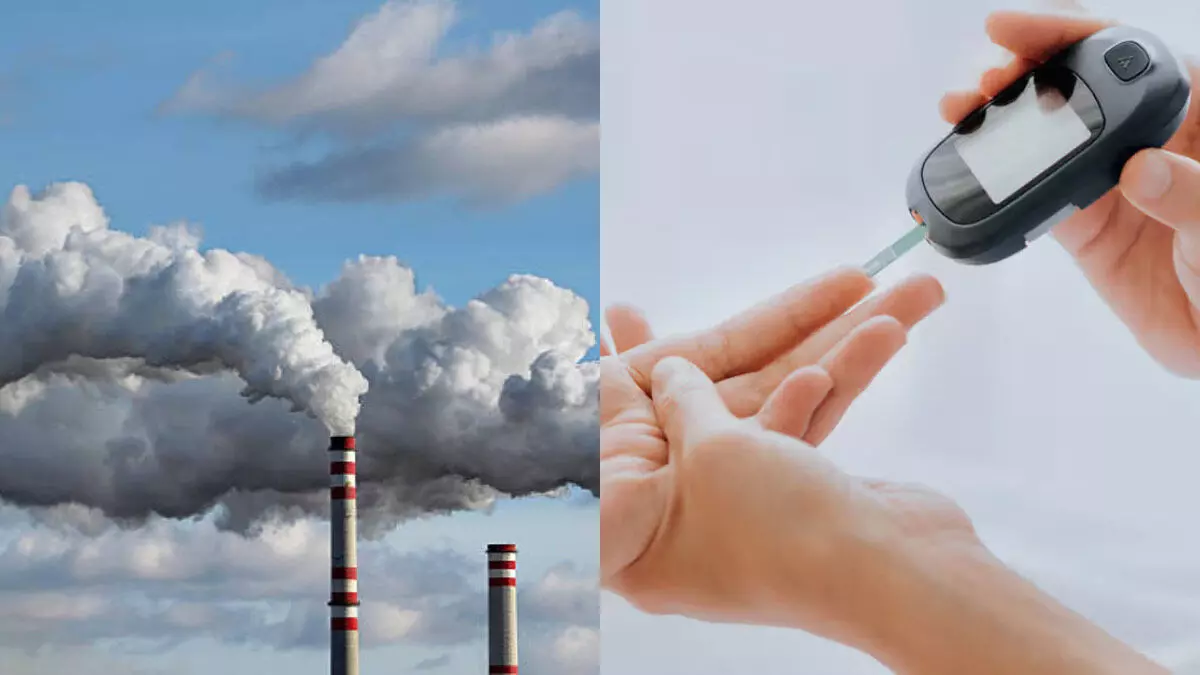Air, plastic and pesticide pollution tied to diabetes surge in India, warn experts
The four-day RSSDI conference, being held in Kerala after 14 years, features expert panel discussions and presentations on diabetes treatment and prevention
By - Anoushka Caroline Williams |
Representational Image
Kochi: With over 101 million people in India currently living with diabetes and pollution levels continuing to rise across urban centres, experts are warning that environmental pollution is now a major, yet under-recognised, contributor to the country’s diabetes burden.
Speaking at the 53rd National Conference of the Research Society for the Study of Diabetes in India (RSSDI), researchers highlighted growing evidence linking air, plastic and pesticide pollution to metabolic disorders and insulin resistance.
Pollution and Diabetes: A new frontier
Dr Vitull K Gupta, Chairman of the Association of Physicians of India (Malwa Branch), described environmental pollutants as ‘a new frontier in diabetology.’
Making a presentation on pollution and diabetes, Dr Gupta said, “The interplay of industrialisation, environmental exposures, and metabolic health requires urgent attention.”
He cited Indian research showing that phthalates, chemicals widely used in plastics, can epigenetically increase the risk of type 2 diabetes and endanger maternal health. “Phthalates, common in plastics, epigenetically increase type 2 diabetes risk and pose a health hazard to pregnant women,” he noted.
Call for policy and clinical action
Dr Gupta called for coordinated policy and clinical responses.
“There is a need for stricter emission standards, monitoring and regulation of pesticide usage, and reducing plastic usage in food packaging,” he said.
He also urged clinicians to include environmental exposure history in diabetes assessments. “Addressing these issues through policy, public health interventions, and clinical practice is essential to curb the diabetes epidemic, particularly in developing nations where both pollution and diabetes are rising rapidly,” he added.
Women are more vulnerable to emotional eating
Another presentation explored the psychological and behavioural side of diabetes. Smita Singh, Clinical Dietician at the Wellness Clinic in Lucknow, presented findings from her paper Emotional Eating and Dietary Compliance in Adults with Type 2 Diabetes – A Psychosocial Metabolic Analysis, which found that women are more susceptible to emotional eating and related glycaemic challenges.
“Interpersonal partner violence (IPV) is also instrumental for women becoming more vulnerable to emotional eating,” she said.
Her cross-sectional study found that 58 per cent of the women surveyed were emotional eaters compared to 34 per cent of men.
Psychosocial factors and glycaemic control
“While dietary compliance is fundamental for glycaemic control, emotional eating driven by psychosocial stressors remains underrecognised,” Singh said. “Interpersonal partner violence (IPV) is an emerging determinant influencing maladaptive eating and poor metabolic outcomes.”
She further noted that emotional eating significantly impairs dietary adherence and glycaemic control in adults with type 2 diabetes.
“These findings highlight the need for holistic diabetes care incorporating routine psychosocial and IPV screening, alongside gender-sensitive and culturally tailored nutrition counselling,” Singh added.
Conference highlights
The four-day RSSDI conference, being held in Kerala after 14 years, features expert panel discussions and presentations on diabetes treatment, prevention and its social and economic impacts in India.
The formal inauguration will take place on Friday, with Justice Devan Ramachandran of the Kerala High Court as the Chief Guest.